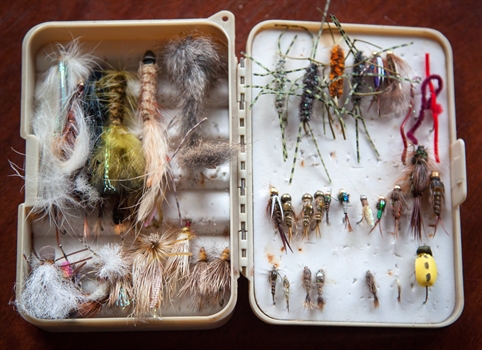Has fishing tackle taken over your house? Reclaim your space from rods, reels, nets and waders by moving your fishing gear and technology into a storage unit. The extra space at home is not the only benefit, either.
Self-storage keeps your fishing kit secure
If you are in any way serious about fishing, the amount you spend on rods and fishing technology starts to add up. So not only is theft of fishing tackle inconvenient, but it’s also costly. Sheds and garages are common targets for thieves, particularly if they have seen you going in and out with portable, valuable items that they know they can easily sell. A storage company may well offer better security than a domestic space. As well as locked doors, storage companies are often protected by CCTV and have staff around to keep an eye on things for much of the time.
A dry, temperature-controlled storage environment will prolong the life of your fishing tackle
Although fishing is an outdoor, all-weather activity, your clothing and rods will fare better if kept in a constant environment. A storage unit offers a steady temperature and humidity level. It also gives you a dry, sheltered place to carry out quick fishing tackle maintenance tasks like checking lines, maintaining reels sorting weights and hooks and making small repairs. Specialist fishing shops like Trout Catchers can give advice on care of specific bits of fishing tackle, like flyfishing lines.
Adapt your storage unit to suit your fishing tackle
If you’ve had your eye on a chest or piece of furniture for storing your fishing tackle but you don’t have the space for it at home, a storage unit is the ideal solution. You can devote your entire storage unit to your fishing tackle if you want.
Can I keep fishing bait in my self-storage unit?
Self-storage companies generally prohibit the storing of live animals, which includes live bait. Storage companies often don’t allow the storage of perishable items, so no dead bait either. In most cases you will not be granted permission to plug in a refrigerator in a self-storage unit. You may be able to make arrangements with your storage company to keep sealed packs of shelf-life boilies and pellets in your storage unit, however. Wherever you store your bait, it is best kept in sealed boxes so that the smell does not draw vermin.
For more information on what you can and can’t keep in your storage unit, we have a post.
Keep your fishing tackle safe from vermin
One reason for these rules about not keeping food and perishable items in your storage unit is that they can attract pests such as mice and rats, which can also damage fishing clothes and nets.
Moth and insects can play havoc with lures and flies made with hair or feathers. Self-storage companies are very vigilant when it comes to moth, and temperature-controlled storage gives even better defence. But keep lures constructed from natural fibres in plastic boxes or sealed bags for extra protection and consider packing them with a moth deterrent, too.
Is my fishing tackle covered under my home contents insurance while in storage?
If you are wondering exactly what is covered by your home contents insurance, the best thing to do is to check your policy. Most home contents insurance policies won’t cover domestic and sporting goods that are stored outside your house. You may have separate insurance for your fishing equipment, which protects it in the home and at the water. Again, you should check your policy to see if your fishing tackle is covered in storage.
Reputable storage companies will require that you insure your stored goods. You will often get the best deal with a specialist insurer of self-stored goods, like Store and Insure. It takes moments to get a quote from us for your self-storage insurance.
Photo by Sarah Labuda on Unsplash


